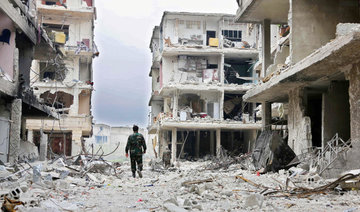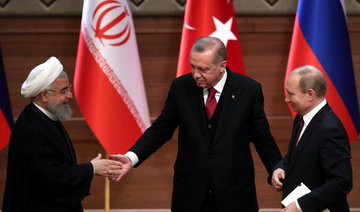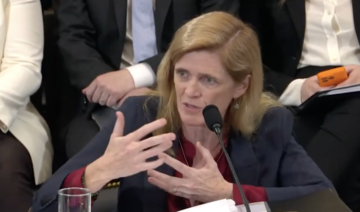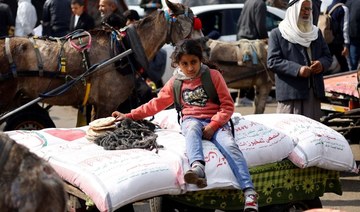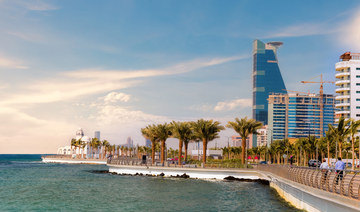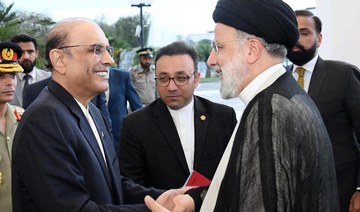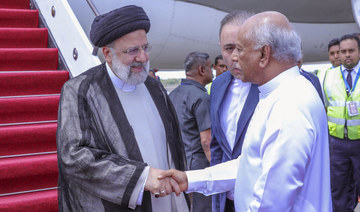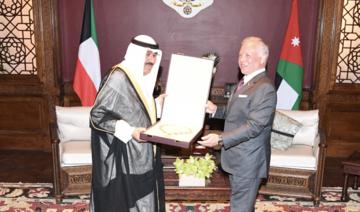GAZIANTEP, Turkey: In the Turkish city of Gaziantep, home to around half a million Syrians who fled the civil war south of the border, hundreds of Syrian businesses are thriving in a boost both for the displaced community and their host country.
Over 3.5 million Syrians are registered in Turkey, far more than in any other country that has welcomed refugees of the seven-year war.
Turkish officials highlight the major economic burden of hosting so many refugees but the presence of this new population — many well-qualified and multilingual — and the success of their businesses have also been a fillip for the Turkish economy, contrary to widely-held assumptions.
More than 6,500 companies founded or co-founded by Syrians have been registered in Turkey since the 2011 start of the war, according to the Union of Chambers and Commodity Exchanges of Turkey.
And the Syrian Economic Forum (SEF), an organization which aims to develop entrepreneurship among the Syrian diaspora, estimates the number in fact to be over 10,000 when the informal sector is included.
In Gaziantep alone, 1,250 Syrian companies are registered with the Gaziantep Chamber of Commerce and Industry, said Rami Sharrack, deputy executive director at SEF.
In a large complex in Gaziantep’s industrial zone, Syrian businessman Amer Hadri, head of prominent crisp and snack packaging company Zirve Extrusion, has succeeded in resuming his business, once based in the war-ravaged city of Aleppo, just 125 kilometers (78 miles) south of the Turkish city.
“We have been producing machines for manufacturing and packaging crisps for over 20 years,” Hadri said.
“Before we exported to the Arab world but since we set up in Turkey, we have realized our ambition to export to the whole world,” he added.
All the packaging has a “Produced in Turkey” label, which Hadri said was a “guarantee of quality” on the European markets.
Like Hadri, many Syrians arrived in Turkey with their experience and customer base.
While some target increased exports and access to international markets, other entrepreneurs have more local ambitions.
Dania Abdulbaqi, a civil engineer who came to Turkey from Hama in 2013, opened a creche in August 2016 for children of all nationalities between three months and five years old after not being able to find one in the area.
“Mothers who work in this district are near their children and can come and breastfeed them during their breaks.”
For this project, Abdulbaqi attended management training courses with NGOs in Gaziantep, and her husband raised funds from relatives to finance it.
“The massive influx has stimulated growth and attracted new investment by providing cheap labor and boosting consumption,” the International Crisis Group said in a report this year.
It added that some experts believe the presence of Syrians added about three percent to Turkish economic growth in 2016.
Fatma Sahin, mayor of Gaziantep and prominent member of President Recep Tayyip Erdogan’s ruling party, said she welcomed the opportunities offered by joint ventures between Turkish and Syrian entrepreneurs.
“People from Gaziantep and Syrians have started businesses together because the fact that they speak two languages, including English and Arabic, is an important advantage, especially for international trade,” she said.
The economy has generally been a trump card for Erdogan in his 15 years in power. But, with both unemployment and inflation at over 10 percent, there are fears about the economy’s underlying health.
Mustafa Turkmenoglu, a Turkmen Syrian originally from Aleppo, left Syria five years ago and created a textile company in Gaziantep.
“All the traders here receive dollars from abroad,” he said. “We benefit from it but others too.”
Turkmenoglu employs 40 Syrians in his workshop, and five in his shop. He said Turks seek higher wages and are more demanding regarding insurance.
The government even relaxed rules to make it easier for Syrians to open businesses although in the face of tensions over favorable treatment, Ankara agreed to impose the same conditions for all.
But in the case of Syrian businesses, authorities seem to have, for now, put “on hold” a rule that a company should employ five Turks for every foreigner, Omar Kadkoy, research associate at Ankara-based TEPAV think tank said.
Yet major problems remain, many linked to the long-term issues of how — and whether — to fully integrate such a large refugee community into Turkish life.
Although Ankara allowed work permits to be issued to Syrian refugees in January 2016, less than one percent have one at present, even though two thirds of the refugees are of working age, said Kadkoy.
He added another obstacle was that a large part of the Syrian refugee population did not know Turkish — which belongs to an entirely different language family to Arabic — and there is no active policy to teach them.
Syrians also fear losing their access to aid, for which as refugees they qualify, if they enter the formal labor market, Kadkoy said.
“They figure if they get formal employment they will be cut off from aid, which is true, (but) the issue there is the aid will certainly not last forever.
“The sooner they get a job, the better it is to sustain an income in the long term,” he said.
Syrian entrepreneurs thrive in Turkey, boost economy
Syrian entrepreneurs thrive in Turkey, boost economy
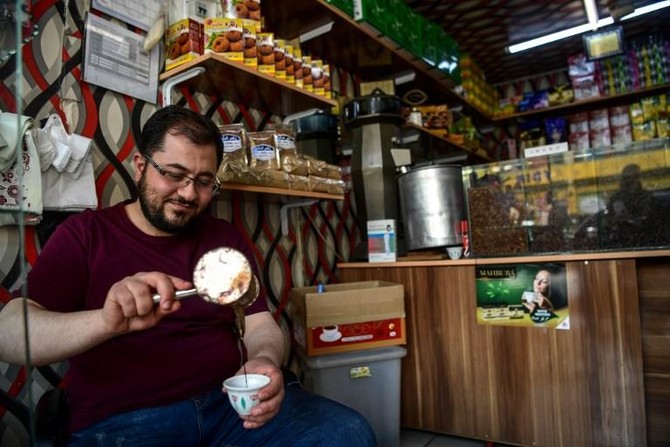
- More than 6,500 companies founded or co-founded by Syrians have been registered in Turkey since the 2011 start of the war
- Some experts believe the presence of Syrians added about three percent to Turkish economic growth in 2016
A blast near a ship off Yemen may mark a new attack by Houthi rebels after a recent lull
- Houthis have launched more than 50 attacks on shipping, seized one vessel and sank another since November
- The explosion happened some 130 kilometers southeast of Djibouti in the Gulf of Aden
The explosion, reported by the British military’s United Kingdom Maritime Trade Operations center, comes after a relative lull from the Houthis after they launched dozens of attacks on shipping in the region over Israel’s ongoing war on Hamas in the Gaza Strip.
The Houthis did not immediately claim responsibility for the blast, but suspicion fell on the group as they’ve repeatedly targeted ships in the same area. It typically takes the Houthis several hours before acknowledging their assaults.
The explosion happened some 130 kilometers southeast of Djibouti in the Gulf of Aden.
“The master of a merchant vessel reports an explosion in the water a distance form the vessel,” the UKMTO said. “Veseel and crew reported safe. Authorities are investigating.”
The private maritime security firm Ambrey separately reported the apparent attack.
The Houthis have launched more than 50 attacks on shipping, seized one vessel and sank another since November, according to the US Maritime Administration.
Houthi attacks have dropped in recent weeks as the rebels have been targeted by a US-led airstrike campaign in Yemen and shipping through the Red Sea and Gulf of Aden has declined because of the threat. American officials have speculated that the rebels may be running out of weapons as a result of the US-led campaign against them and firing off drones and missiles steadily in the last months.
The Houthis have said they would continue their attacks until Israel ends its war in Gaza, which has killed more than 34,000 Palestinians there. The war began after Hamas-led militants attacked Israel on Oct. 7, killing 1,200 people and taking some 250 others hostage.
The ships targeted by the Houthis largely have had little or no direct connection to Israel, the US or other nations involved in the war. The rebels have also fired missiles toward Israel, though they have largely fallen short or been intercepted.
The assaults on shipping have raised the profile of the Houthis, who are members of Islam’s minority Shiite Zaydi sect, which ruled Yemen for 1,000 years until 1962. The group seized Sanaa, Yemen’s capital, in late 2014. A Saudi-led coalition has been battling the group in a stalemated conflict since 2015.
Gaza could surpass famine thresholds in six weeks, WFP official says
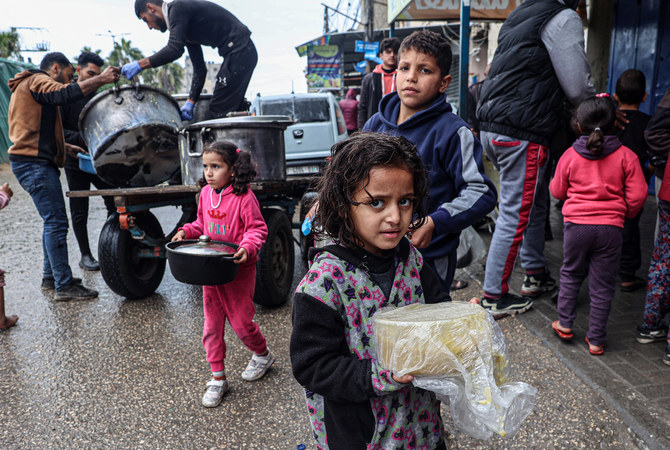
- A UN-backed report published in March said famine was imminent and likely to occur by May in northern Gaza
GENEVA: The Gaza Strip could surpass famine thresholds of food insecurity, malnutrition and mortality in six weeks, an official from the World Food Programme said on Wednesday.
“We are getting closer by the day to a famine situation,” said Gian Caro Cirri, Geneva director of the World Food Programme (WFP).
“There is reasonable evidence that all three famine thresholds — food insecurity, malnutrition and mortality — will be passed in the next six weeks.”
A UN-backed report published in March said that famine was imminent and likely to occur by May in northern Gaza and could spread across the enclave by July. On Tuesday, a US official said the risk of famine in Gaza, especially in the north, was very high.
Cirri was speaking at the launch of a report by the Global Network Against Food Crises, an alliance of humanitarian and development actors including United Nations agencies, the World Bank, the European Union and the United States.
In its report, the network described the 2024 outlook for the Middle East and Africa as extremely concerning due to the Gaza war and restricted humanitarian access, as well as the risk of the conflict spreading elsewhere in the region.
“As for Gaza, the conflict makes it difficult and sometimes impossible to reach affected people,” Cirri said.
“We need to scale up massively our assistance... But under the current conditions, I’m afraid the situation will further deteriorate.”
The United Nations has long complained of obstacles to getting aid in and distributing it throughout Gaza in the six months since Israel began an aerial and ground offensive against Gaza’s ruling Islamist militant group Hamas.
Israel has denied hindering supplies of humanitarian aid and blames aid agencies for inefficiencies in distribution.
Israel’s military campaign has reduced much of the territory of 2.3 million people to a wasteland with a humanitarian disaster unfolding since Oct. 7, when Hamas ignited war by storming into southern Israel.
Cirri said that the only way to steer clear of famine in Gaza was to ensure immediate and daily deliveries of food supplies.
“They’ve been selling off their belongings to buy food. They are most of the time destitute,” he said.
“And clearly some of them are dying of hunger.”
Jordan King, Kuwait Emir stress on importance of reducing regional tensions, avoid escalation
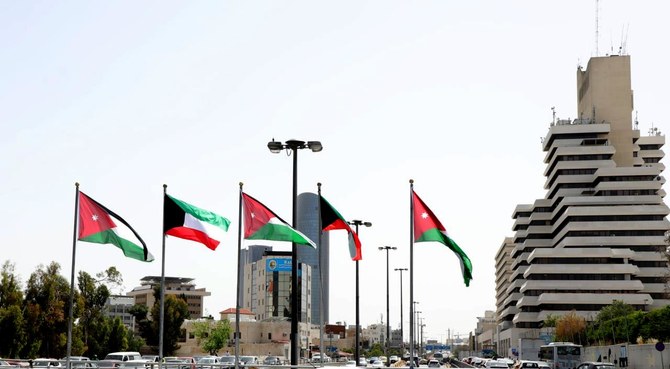
DUBAI: King of Jordan Abdullah II and Emir of Kuwait Sheikh Mishal Al-Ahmad Al-Jaber Al-Sabah stressed on the importance of reducing tensions in the Middle East and avoiding military escalation, according to Petra News Agency.
A joint Jordanian-Kuwaiti statement was issued on Wednesday after the Emir’s two day state visit to the Kingdom.
Both leaders discussed ways to enhance a joint Arab action aimed at confronting emerging regional challenges as well as serving common Arab issues.
The leaders affirmed their support for any steps that ensure the security and stability of the region and stressed the importance of giving priority to dialogue and diplomatic solutions in resolving differences and conflicts.
Their Majesties and Highnesses discussed reaching a just solution to the Palestinian issue and implementing the two-state solution.
The discussions also included talks on investment and tourism, as well as ways to increase trade between Jordan and Kuwait.
Iran cuts Syria presence after strikes blamed on Israel: monitor
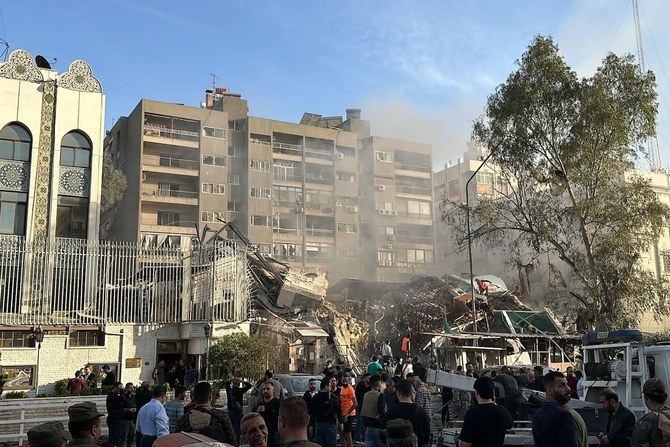
- Iran withdrew its forces from southern Syria, including both Quneitra and Daraa provinces
- Iran has said repeatedly that it has no combat troops in Syria, only officers to provide military advice and training
BEIRUT: Iran has reduced its military footprint in Syria after a succession of strikes blamed on Israel, a source close to Iran-backed militant group Hezbollah and a war monitor said Wednesday.
Iran has provided military support to Syrian government forces through more than a decade of civil war but a series of strikes targeting its commanders in recent months has prompted a reshaping of its presence, the sources said.
“Iran withdrew its forces from southern Syria,” including both Quneitra and Daraa provinces, which abut the Israeli-annexed Golan Heights, the source close to Hezbollah said.
But it still maintains a presence in other parts of the country, the source added.
Recent months have seen a series of strikes on Iranian targets in Syria, widely blamed on Israel, culminating in an April 1 strike that levelled the Iranian consulate in Damascus and killed seven Revolutionary Guards, two of them generals.
That strike prompted Iran to launch a first-ever direct missile and drone attack against Israel on April 13-14 that sent regional tensions spiralling.
But Iran had already begun drawing down its forces after a January 20 strike that killed five Revolutionary Guards in Damascus, including their Syria intelligence chief and his deputy, the source close to Hezbollah said.
Britain-based war monitor, the Syrian Observatory for Human Rights, said Iranian forces had withdrawn from Damascus and southern Syria.
Iran-backed Lebanese and Iraqi fighters had taken their place, Observatory chief Rami Abdel Rahman said.
Iran has said repeatedly that it has no combat troops in Syria, only officers to provide military advice and training.
But the Observatory says as many as 3,000 Iranian military personnel are present in Syria, supported by tens of thousands of Iran-trained fighters from countries including Lebanon, Iraq and Afghanistan.
Abdel Rahman said that many of Iran’s advisers had left Syria over the past six months, although some remained in Aleppo province in the north and in Deir Ezzor province in the east.
Jordan King issues decree to hold parliamentary elections - state TV
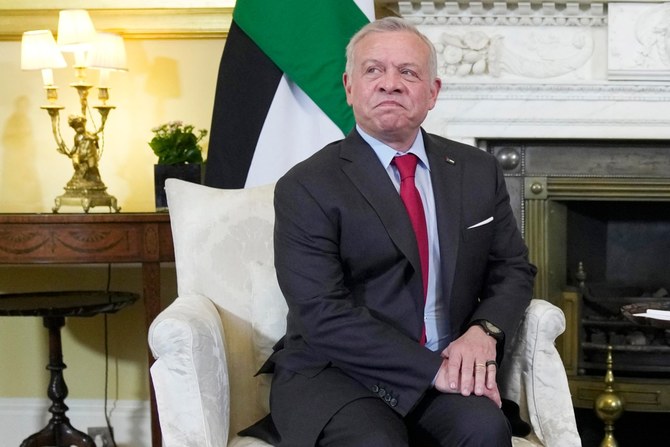
DUBAI: Jordan’s King Abdullah issued a royal decree on Wednesday announcing that a parliamentary election will be held, state TV said.
The election is set to take place on September 10, the Independent Election Commission said, as cited by Jordan’s News Agency (PETRA).
Under the constitution, the multi-party election is usually held within four months of the end of a four-year term of parliament. The country’s last election, with over 4.6 million eligible voters, was held in November 2020.





